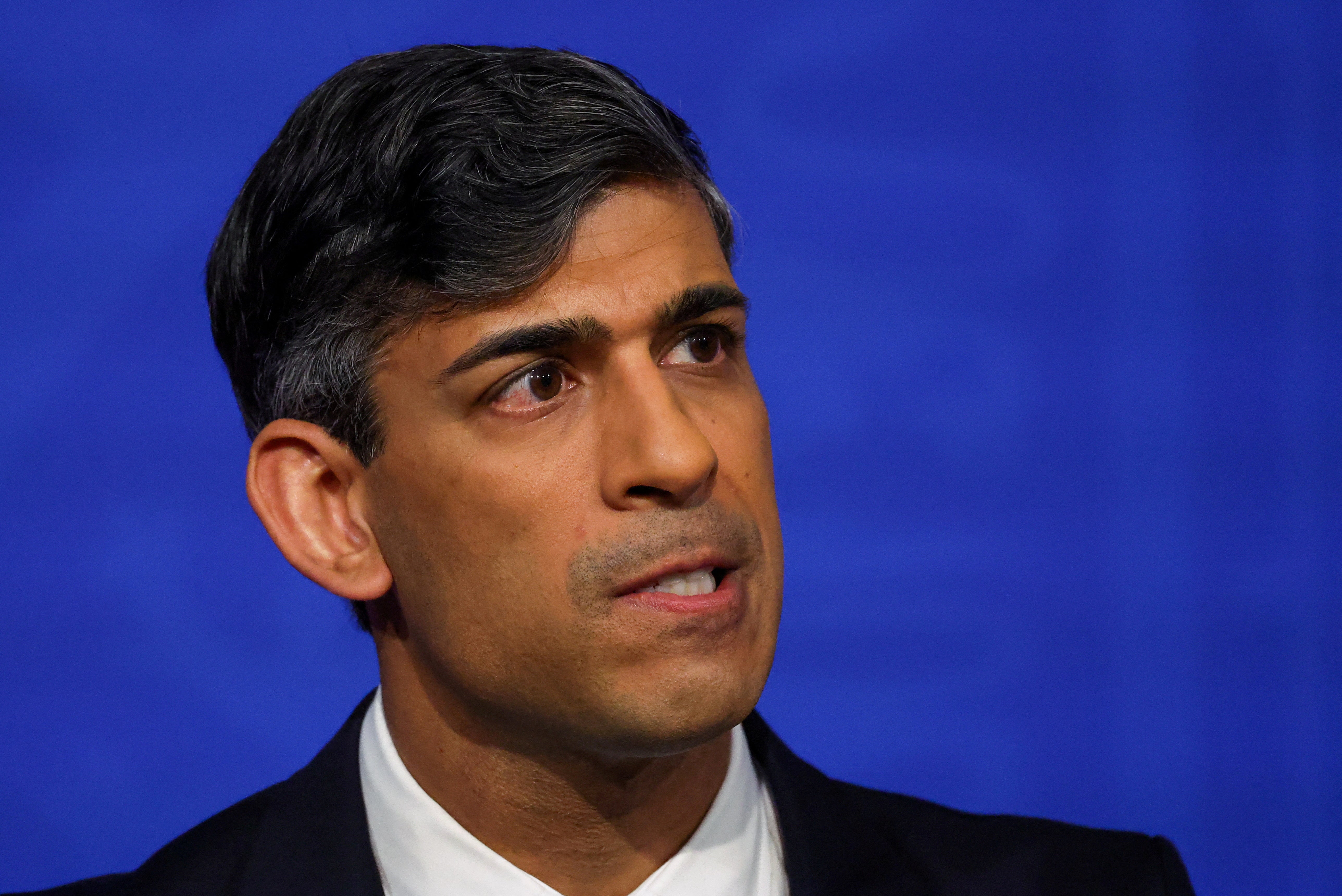The local election results reveal some disturbing patterns for the Conservatives
The Tories should enjoy their victory in the Tees Valley mayoral contest while they can, writes polling guru John Curtice. All other signs point to a rough road ahead for the government


The Conservatives were always on a hiding to nothing in the local elections on Thursday. Most of the seats being contested were last fought over in 2021 when the party was in the lead – not, as now, 20 points behind.
Moreover, Blackpool South was much easier for Labour to capture in the parliamentary by-election there than any of the other seats that had already fallen to the opposition in recent months.
In the event the results were almost as bad for the Conservatives as they could have been – but not quite.
The by-election was not just lost, but spectacularly so. Both the fall in Conservative support and the swing from Conservative to Labour were the third highest in post-war electoral history. The ignominy of being overtaken by Reform in the race for second place was only narrowly averted.
It looks as though when the final few local council results are declared, the Conservatives will have only narrowly avoided the fate of losing half the seats they were defending, and thus suffering the 500 losses that some analysts had predicted given the party’s current standing in the polls.
The BBC’s projection of what would have happened if all the country had local council elections last Thursday put the Conservatives on 25 per cent. This equalled the party’s previous worst performances in 1995 and 2013, but at least it was not worse than that. More importantly, Labour on 34 per cent were nine points ahead of the Conservatives, just as they were last year.
Crucially, this means there was little sign here of any progress by the party towards narrowing the chasm that currently separates it from the opposition in national voting intentions.
With two-thirds of the police commissioner elections counted so far, the party has lost two in five of the positions it was trying to defend. At 8.5 per cent, the swing from Conservative to Labour since 2021 (the last time these posts were elected) in these elections was even slightly higher than the 8 per cent swing in the local council elections.
Meanwhile the party’s hopes of winning the new mayoral positions in the prime minister’s backyard of York and North Yorkshire, or that in the East Midlands, came to naught.
But in what looks likely to prove crucial to the prime minister’s hopes of avoiding a leadership challenge, Ben Houchen did succeed in retaining the Tees Valley mayoralty in what was once traditional Labour territory. That victory certainly presented those Tory MPs who were batting for the party in the television studios just the cover they needed to avoid some of the harder questions about their party’s electoral predicament.
In truth, the outcome of this and many of the other mayoral contests are probably the least reliable guide to the parties’ popularity with the public in a general election. Opinion polling in the Tees Valley suggests that Conservative support in a general election on Thursday would have been 21 points less than the tally Mr Houchen achieved. The Tory mayor has taken every opportunity that his position affords to develop a personal appeal that is independent of his party.
Yet hidden beneath the somewhat contradictory headlines was arguably even more disturbing news for the Conservatives.
Their support fell most heavily as compared with 2021 in those wards where they were strongest last time around. Across all wards the fall in the party’s support averaged 11 points. But in wards where the party won more than 50 per cent of the vote in 2021, its support dropped by 17 points. In contrast, in wards where it won less than 30 per cent, the drop was only 8 points.
Moreover, there were signs that some voters opted to vote for whichever party was best placed locally to defeat the Conservative incumbent. Labour recorded many of its best performances in wards where it started off second behind the Conservatives. The Liberal Democrats found themselves doing best where they started in second place.
These two patterns, which were also in evidence in last year’s local elections, helped to inflate the Tory losses in terms of seats. They indicate there is a risk that, having been treated benignly by the first-past-the-post electoral system in 2019, the Conservatives could find it comes back to bite them in this year’s parliamentary contest.
We perhaps should not be surprised that Conservative MPs wish to grasp the comfort blanket of the Tees Valley result. But they cannot say that they have not been warned by voters of the fate that could yet befall them when the country next goes to the polls.
John Curtice is professor of politics, University of Strathclyde, and senior fellow, National Centre for Social Research and ‘The UK in a Changing Europe’. He is also co-host of the Trendy podcast






Join our commenting forum
Join thought-provoking conversations, follow other Independent readers and see their replies
2Comments